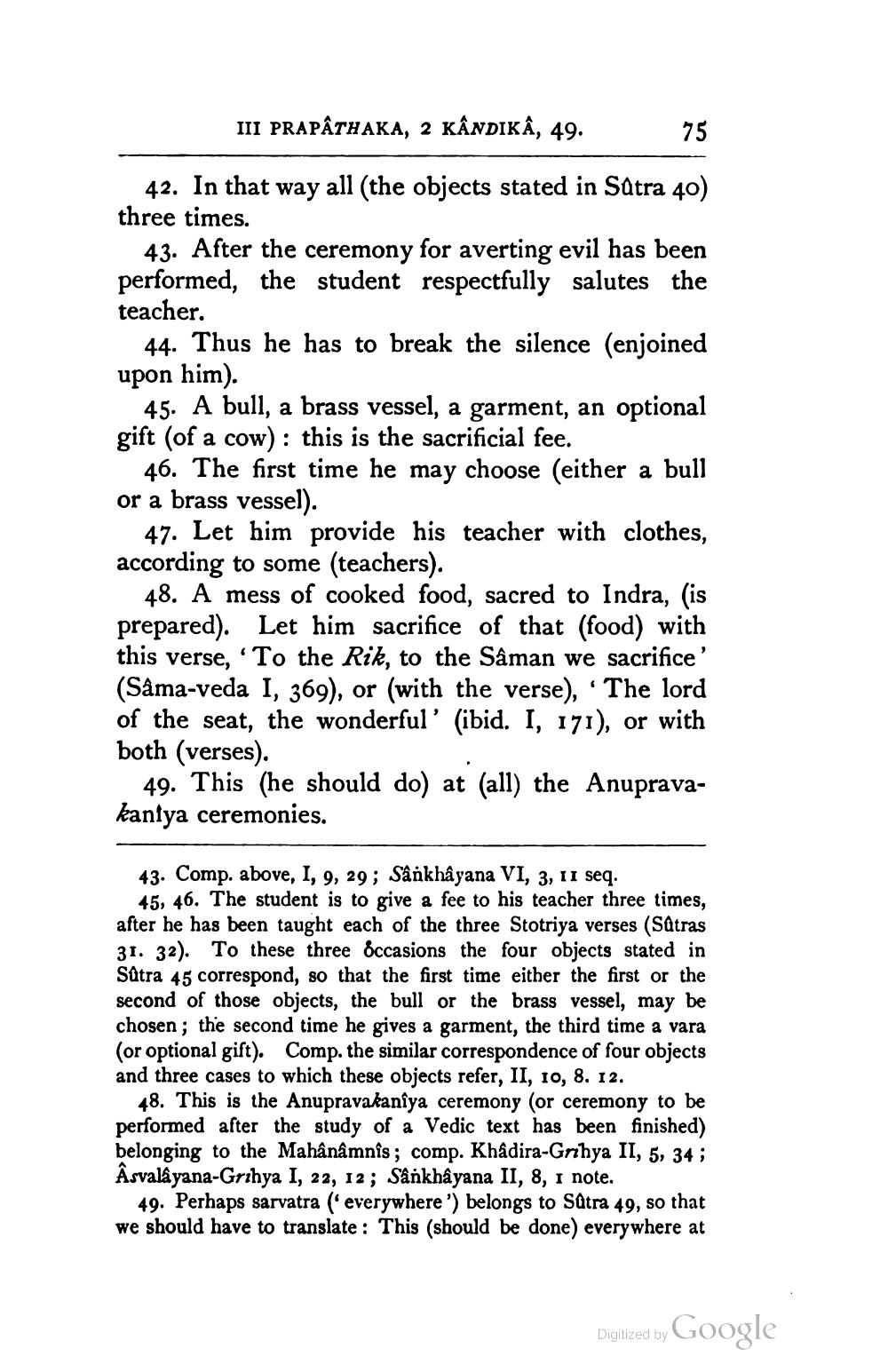________________
III PRAPÂTHAKA, 2 KÂNDIKÂ, 49. 75 42. In that way all (the objects stated in Satra 40) three times.
43. After the ceremony for averting evil has been performed, the student respectfully salutes the teacher.
44. Thus he has to break the silence (enjoined upon him).
45. A bull, a brass vessel, a garment, an optional gift (of a cow): this is the sacrificial fee.
46. The first time he may choose (either a bull or a brass vessel).
47. Let him provide his teacher with clothes, according to some (teachers).
48. A mess of cooked food, sacred to Indra, (is prepared). Let him sacrifice of that (food) with this verse, 'To the Rik, to the Sâman we sacrifice' (Sâma-veda I, 369), or (with the verse), 'The lord of the seat, the wonderful' (ibid. I, 171), or with both (verses).
49. This (he should do) at (all) the Anupravakaniya ceremonies.
43. Comp. above, I, 9, 29; Sânkhâyana VI, 3, 11 seq.
45, 46. The student is to give a fee to his teacher three times, after he has been taught each of the three Stotriya verses (Satras 31. 32). To these three Occasions the four objects stated in Sätra 45 correspond, so that the first time either the first or the second of those objects, the bull or the brass vessel, may be chosen; the second time he gives a garment, the third time a vara (or optional gift). Comp. the similar correspondence of four objects and three cases to which these objects refer, II, 10, 8. 12.
48. This is the Anupravakanîya ceremony (or ceremony to be performed after the study of a Vedic text has been finished) belonging to the Mahânâmnis; comp. Khâdira-Gnhya II, 5, 34; Asvala yana-Gríhya I, 22, 12; Sânkhâyana II, 8, 1 note.
49. Perhaps sarvatra ' everywhere ') belongs to Sūtra 49, so that we should have to translate: This should be done) everywhere at
Digitized by Google




